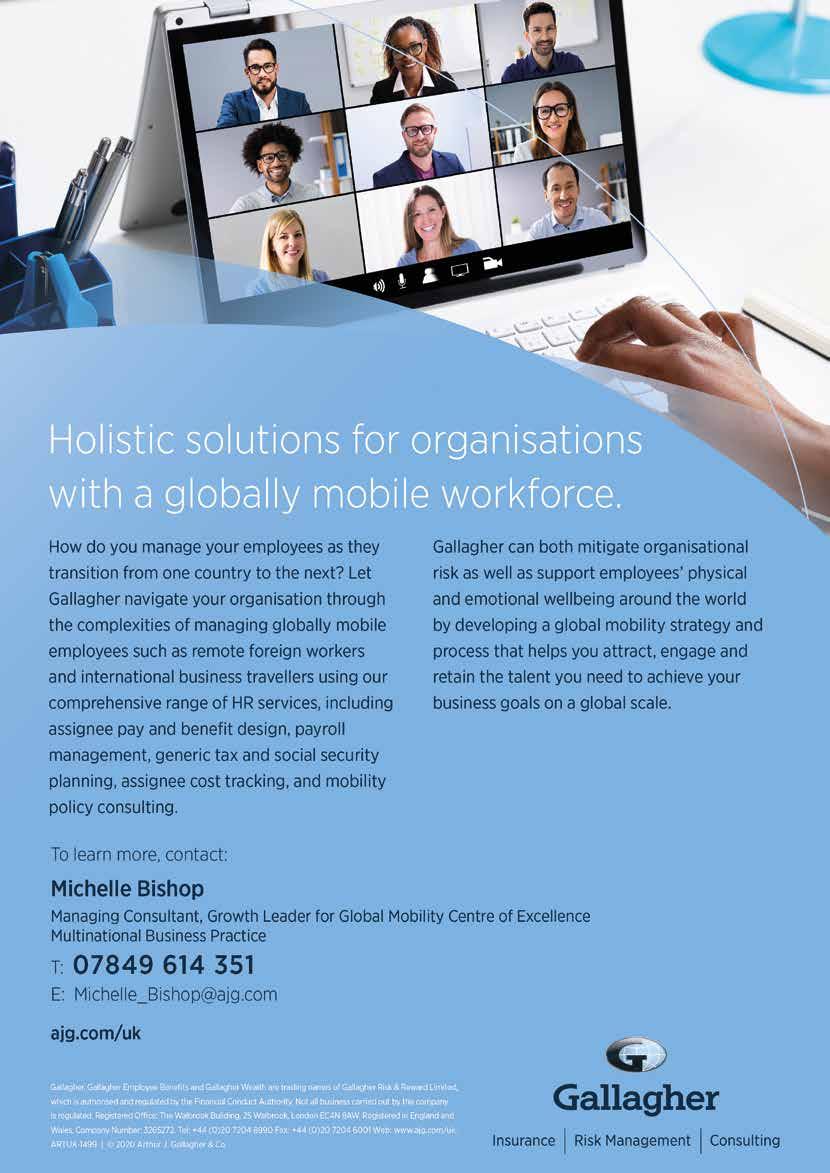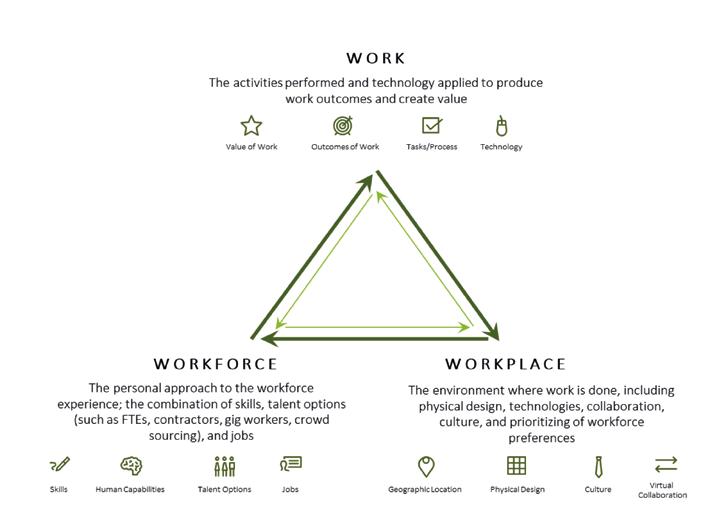REMOTE WORKERS
Remote Control - Ensuring Your Organisation Has A Handle On Policies And Benefits To Better Support Your Remote Workforce As we are six months post lockdown and with a rise in flexible working arrangements and remote working, how can HR manage such requests when working “from home” is in a different country? For many of us, remote working has become our new normal. Technology has enabled us to breeze through our meeting schedules with ease from our new temporary workspaces. Or are they temporary? A recent survey1 from the Chartered Institute of Personnel and Development (CIPD) revealed that the proportion of UK workforce who work from home continuously will rise to 22% post pandemic, compared with the previous rate of 9%. Business leaders are reviewing how these new patterns may benefit their strategies and models of working, reviewing office space leases and questioning the need for full occupancy. Employers are showing flexibility with their teams, and remote working continues to be a valid option for many. But how flexible should an employer be when employees are working remotely in another country? Can employers’ flexible new working practices extend to work anywhere? What if the employee is working in a location where the business does not have a legal presence or entity? We all have familiar examples of individuals getting stuck in locations when borders closed, or started new roles before being able to fully transfer to their new locations perhaps waiting for a visa service to reopen. Such cases were temporary and in most cases, easier to manage as the intention was always to move as soon as borders reopened. However, we are now six months post lockdown and in some parts of the world longer. You may have employees who have been temporarily located during this crisis who are considering a more permanent arrangement. Employees are experiencing increased family commitments, and accommodating requests for ongoing remote working are becoming more common.
A policy outlining the scenarios when such requests are feasible and can be accommodated may prove useful for line managers who want to keep their teams motivated and on board.
A key factor is whether your organisation has an entity in the location where your employee will be working. The simplest route would be to transfer employment to a host entity The willingness to support personal requests needs to be balanced with an understanding of the key issues: legal presence, employment rights, tax and social security withholding, payroll obligations, PE risk, right to work and employment benefits. To support your organisation’s retention goals, by ensuring your employees feel valued and can fully engage in their work, it
will be important for employers to prioritise addressing these questions. A key factor is whether your organisation has an entity in the location where your employee will be working. The simplest route would be to transfer employment to a host entity. This will ensure that the employee is paid in the right location, is paying tax and social security to the correct authorities and employment benefits are provided where they are needed. However, the situation becomes more complex when there is a lack of corporate presence in the new location. A common arrangement is to have the employee on a contract and payroll in one country (e.g.,UK) but working in another. This arrangement may seem the simplest approach, but means that any taxes or social security payments which may be due in the country in which they sit may not be being made. Benefits delivered in the UK are unlikely to be of use to an employee living in Belgium, for example. How does the employee access local services such as healthcare? Mandatory payroll and tax withholding will need to be managed in the host location usually through the set up of a shadow payroll, this of course involves greater administration and unplanned cost. Variances in rates of pay between the base country and host will also present issues if not reviewed and benchmarked. The following compliance areas will need to be reviewed and addressed: 1. Legal Rights – An employee with an employment contract issued in one country but working in another on a permanent basis is likely to raise questions regarding employment rights. An employee may gain rights in the country of work so a full assessment would be recommended to avoid any challenges later on. 2. Tax Withholding – Remote working is likely to trigger a tax liability in the country of work and even a double liability if there are cross border duties. There may be a requirement to file tax returns and complete registrations to remain compliant. Where does the social security liability exist and is the correct paperwork
21










